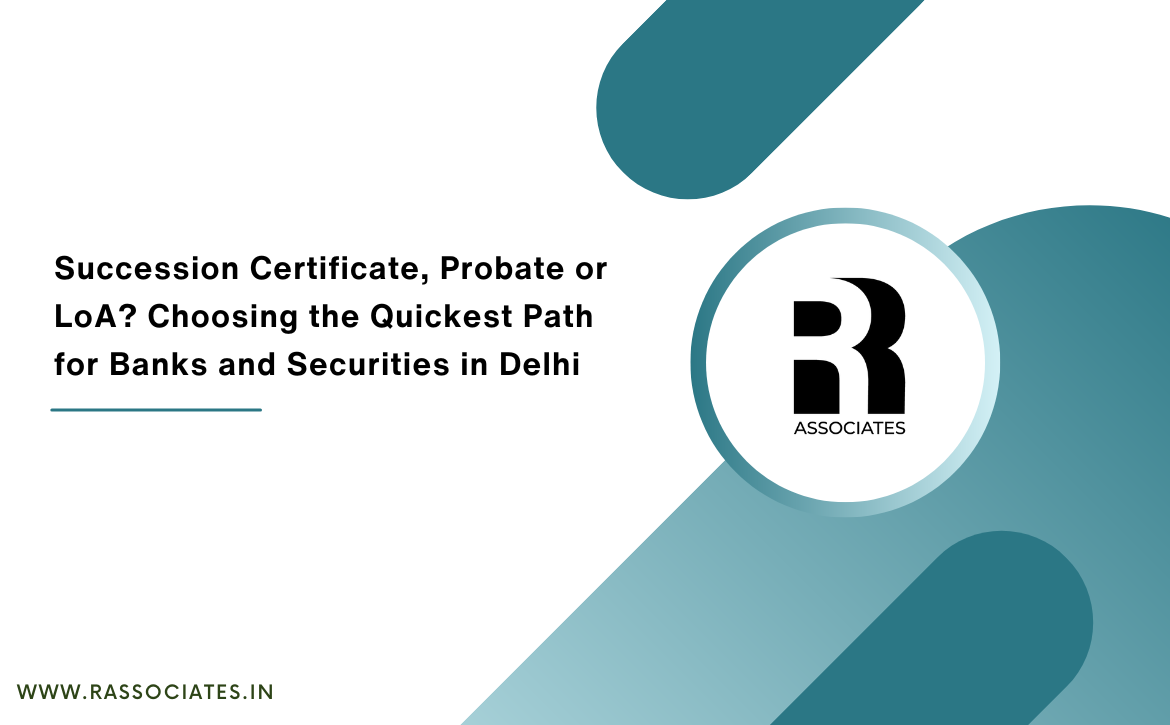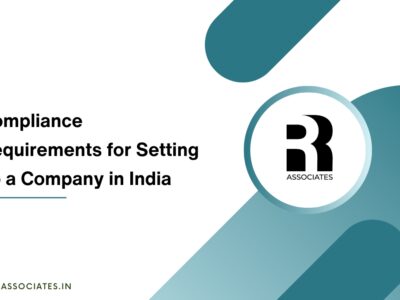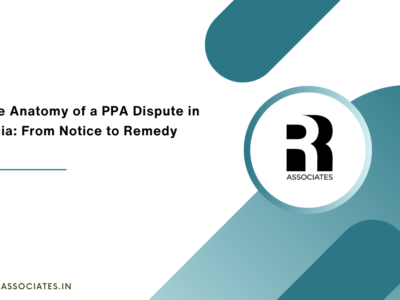
Succession Certificate, Probate or LoA? Choosing the Quickest Path for Banks and Securities in Delhi
When a person passes away, leaving behind bank deposits, shares, bonds, or other securities, the legal heirs often face a pressing question: which document will the bank or financial institution actually accept to release the money? The options usually boil down to three—Succession Certificate, Probate of Will, or Letters of Administration (LoA).
Each of these serves as legal authority for heirs to step into the shoes of the deceased, but they differ in scope, procedure, and speed. For families in Delhi dealing with debts and securities, the choice of the right route can save months of delay and unnecessary legal expenditure. Understanding the practical difference between probate vs succession certificate and when LoA is required is therefore critical before making a move in court.
Succession Certificate in Delhi
A succession certificate is the most direct remedy for heirs seeking access to a deceased person’s debts and securities such as bank balances, fixed deposits, bonds, or shares. Governed by the Indian Succession Act, 1925, it is issued by the District Court having jurisdiction where the deceased ordinarily resided.
For Delhi, heirs typically file a petition before the District Court, supported by details of the legal heirs, the death certificate, and a schedule of debts and securities. Once the court is satisfied, and after publication of notice inviting objections, it grants the certificate. The process usually takes three to six months, depending on objections and court workload.
Banks in Delhi almost always insist on a succession certificate in Delhi before releasing securities if the deceased died intestate (without a Will) or if the Will does not specifically cover securities. The certificate gives indemnity to the bank: once the amounts are paid as per the certificate, the bank cannot be sued later by other heirs.
Thus, for pure debts and securities, the succession certificate is generally the fastest and most secure route—unless a valid Will requires probate.
Probate of Will in Delhi
Probate is the judicial confirmation of a Will. It is a certificate granted by a court declaring that the Will is genuine and that the executor named in it has authority to administer the estate. While probate is compulsory in certain jurisdictions like Mumbai, Chennai, and Kolkata under Section 213 of the Indian Succession Act, it is not generally mandatory in Delhi, unless the Will relates to properties falling within those notified areas or unless required by specific institutions.
That said, banks and depositories in Delhi may still ask for probate when a Will is presented to claim debts and securities, especially if the Will is contested or vague. Probate proceedings involve:
- Filing of a petition by the executor or an heir.
- Submission of the original Will and supporting documents.
- Issuance of notice to legal heirs and publication in newspapers.
- Court scrutiny and, if unopposed, grant of probate.
Probate proceedings tend to take longer than obtaining a succession certificate—commonly six months to over a year in Delhi if there are objections. For families where the deceased left a Will, the key decision is whether to invest time in seeking probate, or whether banks may accept a succession certificate instead.
Letters of Administration (LoA) in Delhi
A Letter of Administration (LoA) comes into play when a person dies leaving a Will but without naming an executor, or when the executor refuses or is unable to act. It is also relevant when someone dies intestate (without a Will) and heirs require formal authority to manage the estate.
In Delhi, the process to obtain LoA is similar to probate:
- The petition is filed before the District Court.
- Notices are issued to all legal heirs.
- A public notice is published inviting objections.
- After the hearing, the court grants the LoA to one or more heirs.
Like probate, LoA proceedings are often more time-consuming than seeking a succession certificate in Delhi, sometimes stretching close to a year if disputes arise. While probate validates a Will, LoA simply authorizes heirs to administer the estate without proving the genuineness of the Will in the same rigorous manner.
For banks and securities, LoA is generally not the first preference unless the estate involves immovable property or complex assets that require full administration. If the objective is only to access debts and securities, heirs in Delhi usually find a succession certificate to be quicker and more acceptable to institutions.
Comparing the Three: Picking the Fastest Route in Delhi
| Aspect | Succession Certificate | Probate of Will | Letters of Administration (LoA) |
| When Needed | For debts and securities when the deceased dies intestate, or the Will does not cover securities. | When a Will exists and institutions demand confirmation of its validity. | When a Will exists but no executor is named, or if the executor is unwilling/unable; also when a person dies intestate and full estate administration is required. |
| Court in Delhi | District Court (where the deceased ordinarily resided). | District Court (where the deceased resided or property is situated). | District Court (same as above). |
| Process Duration | 3–6 months (if uncontested). | 6–12 months or longer (especially if contested). | 6–12 months (similar to probate). |
| Scope | Limited to debts and securities (bank accounts, FDs, shares, bonds). | Confirms genuineness of the Will and authorizes executor. | Authorizes heirs to administer the estate when no executor. |
| Bank Preference | Widely accepted in Delhi for release of securities. | Sometimes demanded if Will is produced; slower. | Rarely asked for by banks; usually needed for broader estate administration. |
Conclusion
While probate and LoA have their place—particularly when a Will must be authenticated or when broader estate administration is required—they are lengthier, more complex, and often unnecessary if the focus is limited to securities.
In contrast, a succession certificate in Delhi provides a clear, court-backed authority that banks readily accept. It balances the rights of heirs with the protection of institutions, ensuring indemnity once payments are made.




